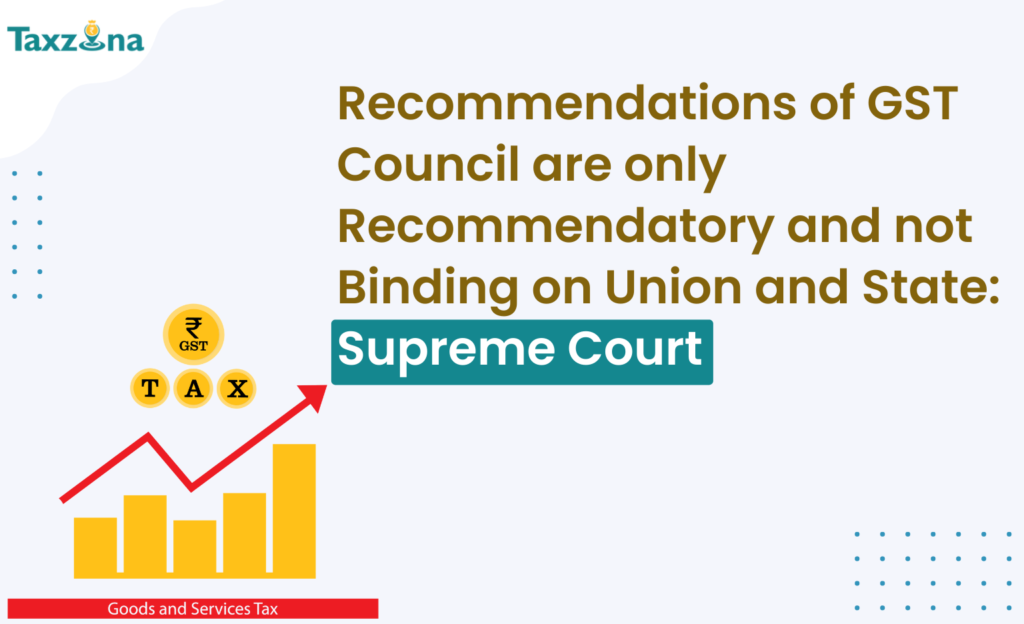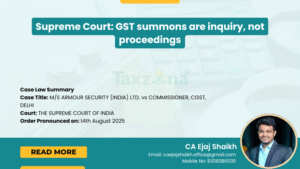The Supreme Court has ruled that the central government and states have equal powers to legislate on the Goods and Service Tax (GST).
As a result, the GST council must work together to reach a workable solution between the Centre and the States, according to the Supreme Court.
In particular, the Court ruled that the GST Council’s recommendations are not binding on states, but merely have persuasive value.
“States and Centre can equally legislate on matters of GST. All recommendations of GST council is not binding on State legislature,” the Supreme Court held.
The Supreme Court further added “Article 246A treats State and Centre as equal. Article 279 says state and center cannot act independent of each other. This also points towards competitive federalism”
Further, in addition to above, the Supreme Court also made important observations on co-operative federalism. The Supreme Court said “Indian federalism is a dialogue between cooperative and non-cooperative federalism. Indian federalism is a dialogue in which States and Centre always engages in a dialogue”




